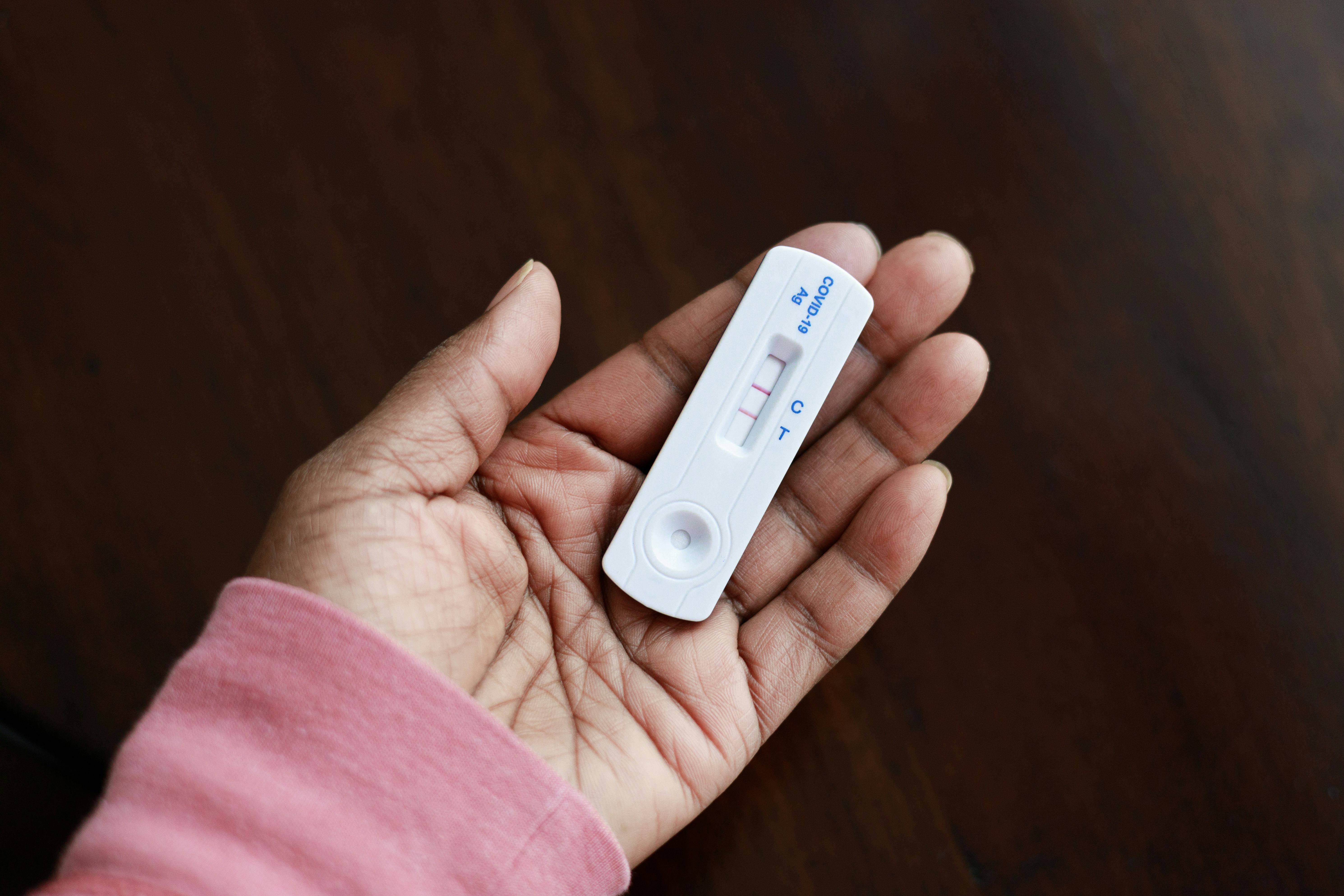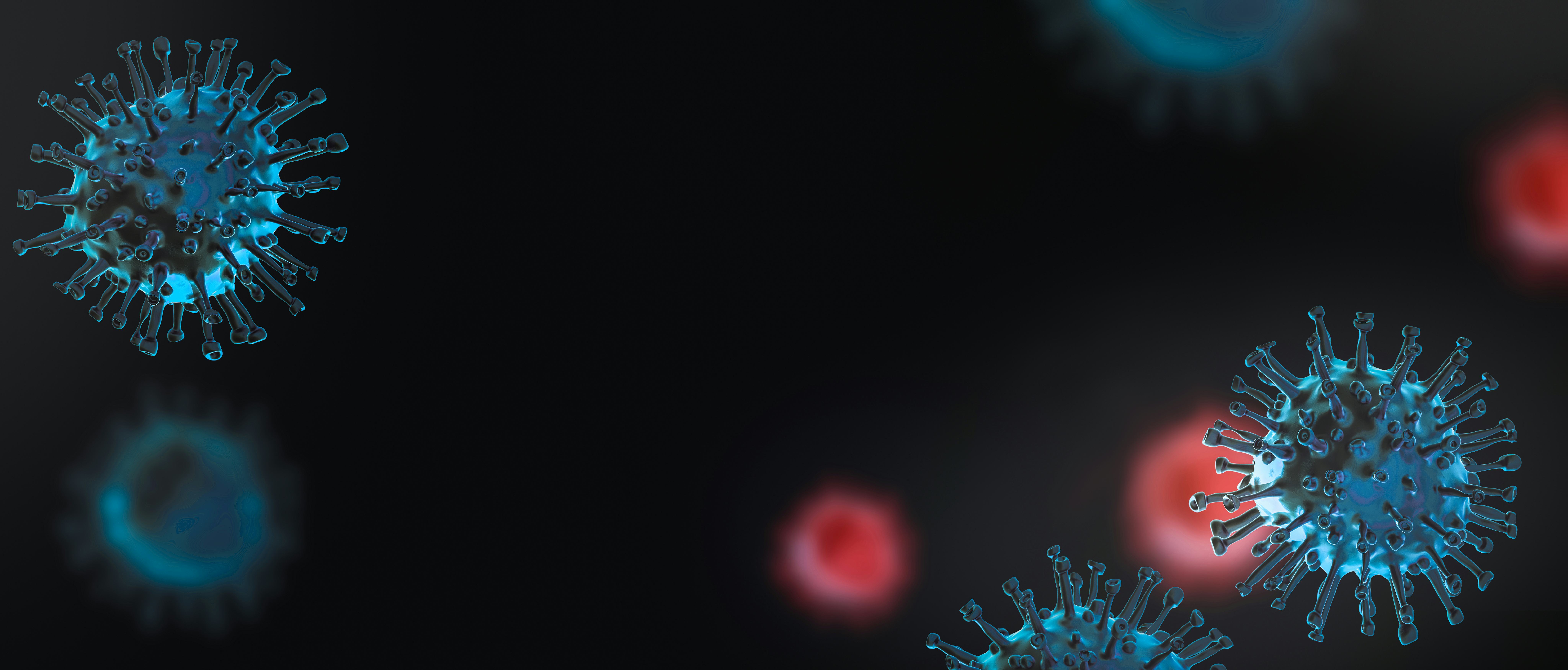
As humanity moves toward a future living side-by-side with Covid-19, there’s a question of what’s next in terms of the next outbreak and potential public health measures. To that end, what’s arguably been a focus of great attention are vaccines. Since the first Covid-19 jab rolled out in December 2020, billions of people have been vaccinated, a global effort that’s saved countless lives and continues to protect us against the worst of the virus. But we’re not out of the woods — with Covid-19’s propensity for mutation and new variants, there’s a question of whether we should expect annual or seasonal boosters much like what’s recommended for the flu.
It’s a strategy the U.S. Food and Drug Administration is pondering over, the agency announced in January. In the meanwhile, scientists are working on future-proofing the Covid-19 vaccines, formulating them to protect us universally against future variants. But how exactly would you do that? One group of researchers is hoping to harness the power of our greatest immunological ally: The T cell.

In a study published last week in the journal Frontiers of Immunology, a group of researchers led by MIT have created a Covid-19 vaccine, using a little help from machine learning, that encouraged T cells to fight against the virus in nearly a dozen infected mice, protecting them from Covid-19-related death. While this is a proof-of-concept that’s still far away from being tested or realized in humans, it could be a valuable development as scientists work towards “pan-coronavirus” vaccines, preventing future outbreaks, or helping those affected with long Covid.
“We have effective, but not perfectly effective Covid-19 vaccines. There are investigators around the world who are trying to up the ante, notch it up to something even better,” William Schaffner, professor of preventive medicine and infectious diseases at Vanderbilt University School of Medicine, tells Inverse. “One of the great goals is to develop a vaccine that protects against a whole variety of different variants… [so] this study is very exciting.”
How does T-cell vaccine immunity work?
T cells, also known as T lymphocytes, are a type of white blood cell that play a critical role in the immune system's response to viral infections. There are several different types of T cells, including helper T cells, killer T cells, and memory T cells. When a virus infects and replicates inside a cell, the unwitting host will display little bits of viral protein at its surface within other proteins called major histocompatibility complex, which act like display windows at a department store.
When a T cell happens across these viral proteins, depending on the type, it can either activate other immune cells, or it will directly lead the charge against the infected cells. This often coordinated effort helps to prevent the virus from spreading and multiplying within the body.
While vaccines are probably well-known for stimulating antibody production by teaching B cells (the immune cell that makes antibodies) how to recognize a specific pathogen, vaccines can also do the same with T cells in much the same manner. Helper and killer T cells are the main actors of vaccine-induced immunity, but when the infection is squared away, memory T cells keep a record of the scuffle so the immune system can quickly respond to future infections.
There’s been research suggesting that our current Covid-19 vaccines, aside from principally prompting antibody production, may encourage a T cell response, but it’s not clear how effective that immune response will be against future infections or reinfections, David Gifford, senior author of the new paper and professor of biological engineering at MIT, tells Inverse.
“The issue [with current Covid-19 vaccines] is whether or not the T cell response they engender is going to be conserved and able to protect against variants of the [Covid-19] virus,” he says.
But creating a T cell-inducing vaccine that engenders the response you want isn’t all easy-peasy, and that’s because of those viral protein “display windows,” the major histocompatibility complex, Deborah Fuller, professor of microbiology at the University of Washington School of Medicine, who was not involved in the study, tells Inverse.

Fuller says the genes encoding these proteins are super diverse, what’s called highly polymorphic because they exist in many, innumerable flavors within a population. This means depending on your major histocompatibility complex proteins, your cells might not display to a T cell the exact same portion of the viral protein compared to your best friend or neighbor. (Think of it like differently shaped or sized display windows — a big oval compared to a small square.)
“If I’m exposed to a vaccine or a virus, my [major histocompatibility complex] will be different. I’m going to recognize different [viral] pieces and induce different immune responses than you would,” she says. This is in contrast to antibodies which are the same size and shaped torpedo for everyone.
So the challenge in creating a T cell-inducing vaccine is two-fold: Finding bits of a viral protein that fit nicely in everyone’s cellular display window and making sure those viral bits can sufficiently stimulate a good, robust immune response.
The search for viral proteins
To do that, Gifford and his team of researchers across the University of Texas, Boston University, Tufts University, Massachusetts General Hospital, and Acuitas Therapeutics used machine learning to find Covid-19 proteins from over 22 variants of concern that have remained pretty much consistent (what’s called conserved) and screening those against a major histocompatibility genetics database provided by the National Institutes of Health. (Gifford says this data was comprised of three populations self-reporting as either white, Black, or Asian.)
The team eventually identified 11 tiny chunks of viral protein encoded all over the coronavirus’ genome (so not just the spike protein, which has been a major vaccine target) that appeared to work well with all sorts of different major histocompatibility complexes, at least according to the AI.
Once that was done, it was time to cook up a vaccine — Gifford says they made into an mRNA-based jab, much like Pfizer-BioNTech and Moderna — and test it out in transgenic mice, engineered to carry a specific type of human major histocompatibility complex called HLA-A2, which is globally common but in varying degrees depending on the population.
Thirty-three of these mice were split up into three groups: one that got the experimental shot (dubbed MIT-T-COVID vaccine), another that got Pfizer-BioNTech’s Comirnaty vaccine, and the last, a simple saline shot. After the first jab, the animals got a booster jab three weeks later. Two weeks after the booster, the “humanized” mice had a mist of Covid-19 sprayed up their little schnozzes, specifically the beta variant first identified in South Africa at the end of 2020. (The researchers chose this variant since it’s available to study in a select few research labs in the U.S. and is still pretty pathogenic.)
“The importance of [this study] is that it gets around the issue of antibody evasion by the virus as it mutates.”
As you might expect, mice who weren’t immunized, whether with the MIT-T-COVID or Pfizer-BioNTech vaccines, did not survive. Immunized mice did get sick but not as badly, with the Pfizer-BioNTech animals faring a little bit better.
But was there a T cell response? There definitely was. The MIT-T-COVID mice were found to have quite a number of killer T cells swimming around in their lungs compared to the Pfizer-BioNTech mice, as well as helper T cells compared to unimmunized mice. Even in another group of mice who were also immunized but weren’t infected, mousy lungs abound in killer T cells compared to the control (aka saline shot) group.
A proof-of-concept with a long road ahead
While the results are an encouraging sign amid a concerted push for a universal or pan-coronavirus vaccine, there’s still much that’s unknown about whether a T cell-only vaccine approach would be efficacious in the long run, says Stanley Perlman, professor of microbiology and immunology at the University of Iowa.
“The importance of [this study] is that it gets around the issue of antibody evasion by the virus as it mutates,” he tells Inverse. “What we don’t know is whether [we] put only a T cell vaccine, if the virus wouldn’t then start mutating [those viral proteins]. So far, it hasn’t really done that.”
He and Fuller of the University of Washington say more research would need to be done before this sort of jab is trialed in humans, especially as this study only looked at how the vaccine held up against one variant and only for one type of major histocompatibility complex.
“One of the limitations of the interpretation of this data is that they only focus on HLA-A2, although their vaccine design incorporates multiple HLA,” says Fuller. “We can’t know from this study whether or not we would see the same repertoire of T cell responses [able to interact] with other [major histocompatibility complexes].”
Gifford acknowledges his team has a long road ahead of first mice experiments and then eventually clinical trials in humans. But he notes this sort of vaccine wouldn’t just be useful in protecting an infected individual from death or the worse complications of Covid-19. It could potentially help folks with immunodeficiencies and those affected by long Covid.
“I think the vaccine is interesting from a scientific point of view, but also, I think it could be very useful for people with deficiencies that cannot produce antibodies,” he says. “Since it basically sort of re-energizes the cellular immune system to seek out and destroy infected cells, if there are reservoirs of infected cells in people with long Covid, it might be an effective path to explore generating a long Covid therapeutic.”







